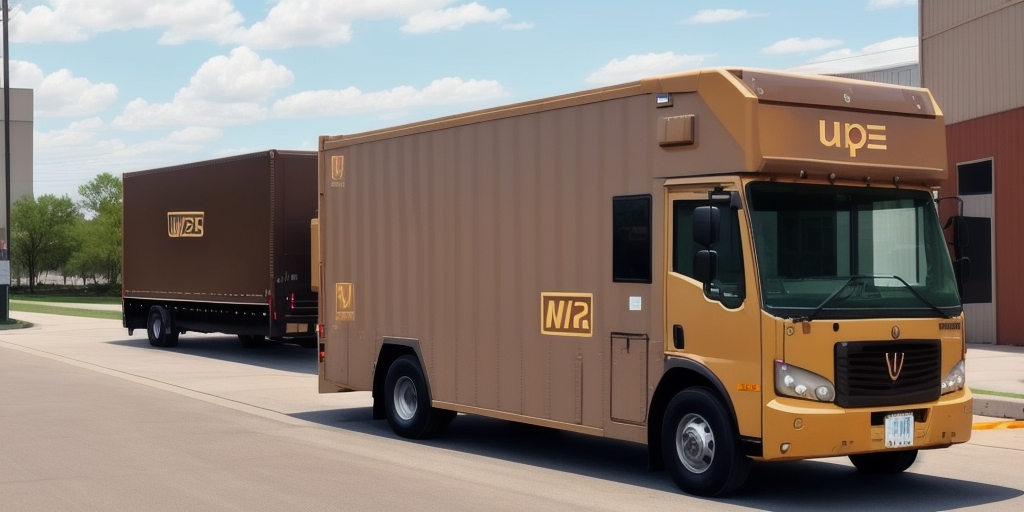Understanding the Factors Influencing UPS Shipping Costs
Shipping costs with UPS can significantly impact your business's bottom line. Several key factors determine the overall cost of shipping, and understanding these can help you make informed decisions to optimize your shipping strategy.
Package Weight and Size
The weight of your package is a primary factor in determining shipping costs. UPS calculates charges based on the actual weight and the dimensional weight of the package, whichever is greater. Dimensional weight considers the size of the package relative to its weight, ensuring that larger, lighter packages are priced appropriately.
Distance and Delivery Speed
The distance your package travels plays a crucial role in shipping costs. Longer distances typically incur higher fees. Additionally, the speed of delivery selected—such as overnight, 2-day, or ground shipping—affects the overall cost. Faster delivery options come at a premium but may be necessary for time-sensitive shipments.
Service Type and Additional Features
UPS offers various service types, each tailored to different shipping needs. Services like UPS Ground, UPS 3 Day Select, and UPS Next Day Air have distinct pricing structures. Furthermore, add-ons such as insurance, signature confirmation, and Saturday delivery can increase the total shipping cost.
Estimating and Comparing UPS Shipping Expenses
Accurately estimating your shipping costs is essential for budgeting and pricing your products effectively. Here's how you can estimate and compare shipping expenses:
Using the UPS Shipping Calculator
UPS provides an online shipping calculator that allows you to estimate costs based on package dimensions, weight, origin, destination, and selected service. This tool is invaluable for getting quick and accurate estimates tailored to your specific shipping needs.
Comparing with Other Carriers
It's beneficial to compare UPS shipping costs with other major carriers like FedEx and USPS. Each carrier has its strengths, and comparing prices can help you identify the most cost-effective option for different types of shipments. Tools like ShipScience's comparison guides can provide detailed insights.
Impact of Fuel Surcharges
Fuel surcharges are additional fees that UPS and other carriers apply to cover fluctuating fuel costs. These surcharges can vary based on fuel prices and can impact your overall shipping expenses. It's important to factor these into your cost calculations to avoid unexpected increases in shipping costs.
Effective Strategies to Minimize UPS Shipping Costs
Implementing strategies to reduce shipping costs can lead to significant savings for your business. Here are some proven methods to help you minimize expenses:
Optimizing Package Weight and Size
Reducing the weight and dimensions of your packages can lower both actual and dimensional weight charges. Use appropriately sized packaging and lightweight materials without compromising the protection of your items.
Choosing the Right Shipping Service
Selecting the most suitable shipping service based on delivery needs can help control costs. For non-urgent shipments, opting for UPS Ground instead of expedited services can result in substantial savings.
Leveraging Discounts and Negotiating Rates
Businesses that ship frequently with UPS may qualify for volume discounts or negotiated rates. Contacting your UPS representative to discuss your shipping patterns can open opportunities for reduced pricing.
Comprehensive Overview of UPS Shipping Services and Fees
UPS offers a wide range of shipping services to accommodate different business needs. Understanding these services and associated fees can help you choose the most appropriate option.
UPS Shipping Services
- UPS Ground: Cost-effective for domestic shipments with delivery times ranging from one to five business days.
- UPS 3 Day Select: Balances speed and cost for shipments that need to arrive within three business days.
- UPS Next Day Air: Provides next-day delivery for urgent shipments.
- UPS International Services: Offers shipping to over 220 countries with various delivery speed options.
Additional Fees for Special Services
UPS charges additional fees for services such as:
- Signature Confirmation: Ensures packages are received by the intended recipient.
- Insurance: Protects the value of your shipment in case of loss or damage.
- Saturday Delivery: Enables weekend deliveries for an extra fee.
Managing Shipping Logistics for Optimal Efficiency
Efficient management of your shipping logistics can lead to reduced costs and improved service quality. Here’s how to manage your shipments effectively:
Proper Packaging Techniques
Using the right packaging materials and methods can prevent damage during transit, reducing the likelihood of returns and additional costs. Investing in quality packaging ensures that your products arrive safely.
Tracking and Managing Expenses
Utilize UPS's tracking tools to monitor your shipments in real-time. Additionally, implementing software solutions or accounting tools to track and analyze your shipping expenses can help identify areas for cost reduction.
Planning for Peak Seasons
During peak shipping seasons, such as holidays, UPS shipping costs may increase, and delivery times can be longer. Plan your shipments in advance and consider scheduling earlier to avoid rush fees and delays.
International Shipping with UPS: Cost-Saving Tips
Expanding your business internationally involves additional shipping considerations. Here are strategies to save on international shipping costs with UPS:
Utilize UPS International Ground
For non-urgent international shipments, UPS International Ground is a cost-effective option compared to air shipping. It offers reliable delivery times at a lower price point.
Consolidate Shipments
Shipping multiple items in a single package can reduce overall shipping costs by minimizing packaging materials and taking advantage of bulk shipping rates.
Understand Customs and Regulations
Properly preparing your shipments for international transit by understanding customs requirements and avoiding potential delays can save costs associated with expedited handling and re-shipments.
Pros and Cons of Using UPS for Business Shipping
Choosing UPS as your primary shipping carrier comes with its advantages and disadvantages. Evaluating these can help determine if UPS is the right fit for your business needs.
Advantages of UPS
- Reliability: UPS has a vast network and strong reputation for dependable delivery services.
- Comprehensive Tracking: Advanced tracking features provide visibility into shipment status.
- Variety of Services: A wide range of shipping options caters to different business needs.
Disadvantages of UPS
- Higher Costs: UPS shipping fees can be more expensive compared to some competitors, especially for smaller businesses.
- Strict Package Restrictions: UPS has specific size and weight limitations that may not accommodate all types of shipments.
- Potential for Delays: During peak seasons, UPS may experience delivery delays, affecting customer satisfaction.
In conclusion, understanding the various factors and strategies related to UPS shipping can help your business manage and optimize shipping costs effectively. By making informed decisions and leveraging available tools and services, you can ensure that your shipping operations are both cost-efficient and reliable.








